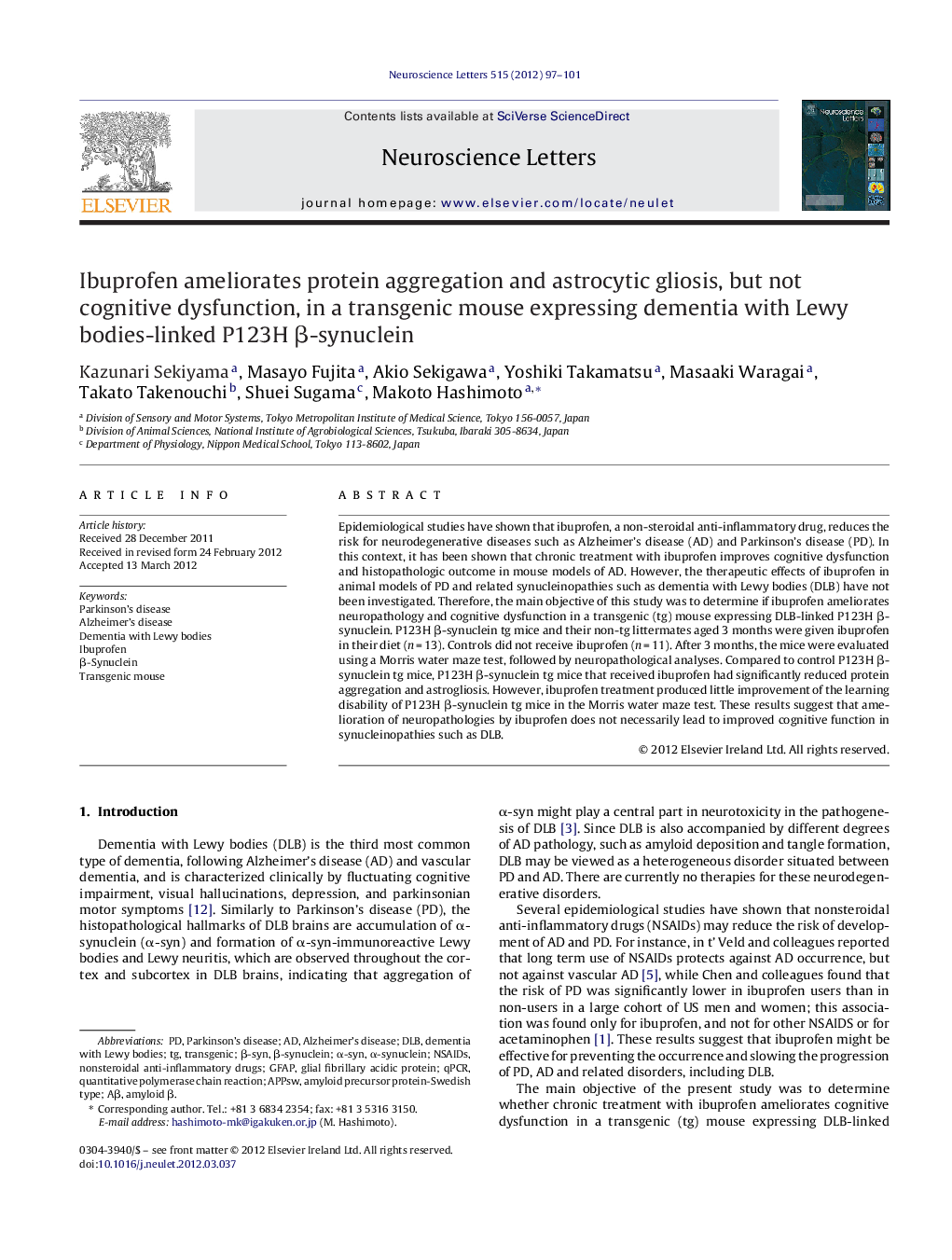| Article ID | Journal | Published Year | Pages | File Type |
|---|---|---|---|---|
| 4344657 | Neuroscience Letters | 2012 | 5 Pages |
Epidemiological studies have shown that ibuprofen, a non-steroidal anti-inflammatory drug, reduces the risk for neurodegenerative diseases such as Alzheimer's disease (AD) and Parkinson's disease (PD). In this context, it has been shown that chronic treatment with ibuprofen improves cognitive dysfunction and histopathologic outcome in mouse models of AD. However, the therapeutic effects of ibuprofen in animal models of PD and related synucleinopathies such as dementia with Lewy bodies (DLB) have not been investigated. Therefore, the main objective of this study was to determine if ibuprofen ameliorates neuropathology and cognitive dysfunction in a transgenic (tg) mouse expressing DLB-linked P123H β-synuclein. P123H β-synuclein tg mice and their non-tg littermates aged 3 months were given ibuprofen in their diet (n = 13). Controls did not receive ibuprofen (n = 11). After 3 months, the mice were evaluated using a Morris water maze test, followed by neuropathological analyses. Compared to control P123H β-synuclein tg mice, P123H β-synuclein tg mice that received ibuprofen had significantly reduced protein aggregation and astrogliosis. However, ibuprofen treatment produced little improvement of the learning disability of P123H β-synuclein tg mice in the Morris water maze test. These results suggest that amelioration of neuropathologies by ibuprofen does not necessarily lead to improved cognitive function in synucleinopathies such as DLB.
► Ibuprofen was tested on a mouse expressing DLB-linked P123H β-synuclein. ► These mice fed with ibuprofen exhibited improved neuropathology. ► Nonetheless, these mice showed little improvement of the learning disability.
